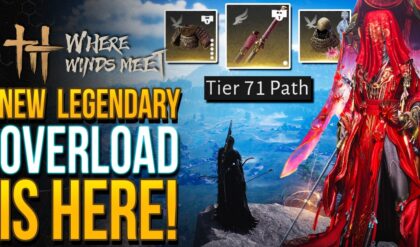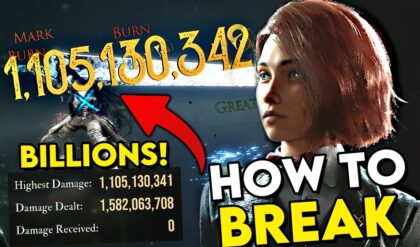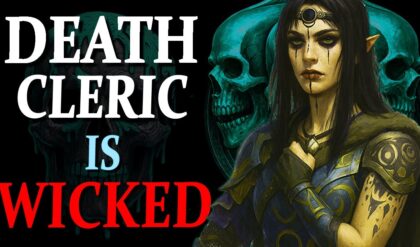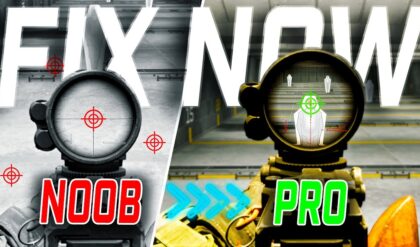What if Assassin’s Creed’s “villain origin” was secretly its best story… but no one noticed? 🗡️
Shay’s Templar twist flips the script on Assassins vs. Templars, delivering naval chaos and lore bombs that Black Flag fans crave. Yet critics called it “recycled trash”—short, buggy, overshadowed by Unity’s hype. Underrated gem or franchise flop? The truth buries deeper than a hidden blade.
Uncover why Rogue’s hate might be the series’ biggest injustice:
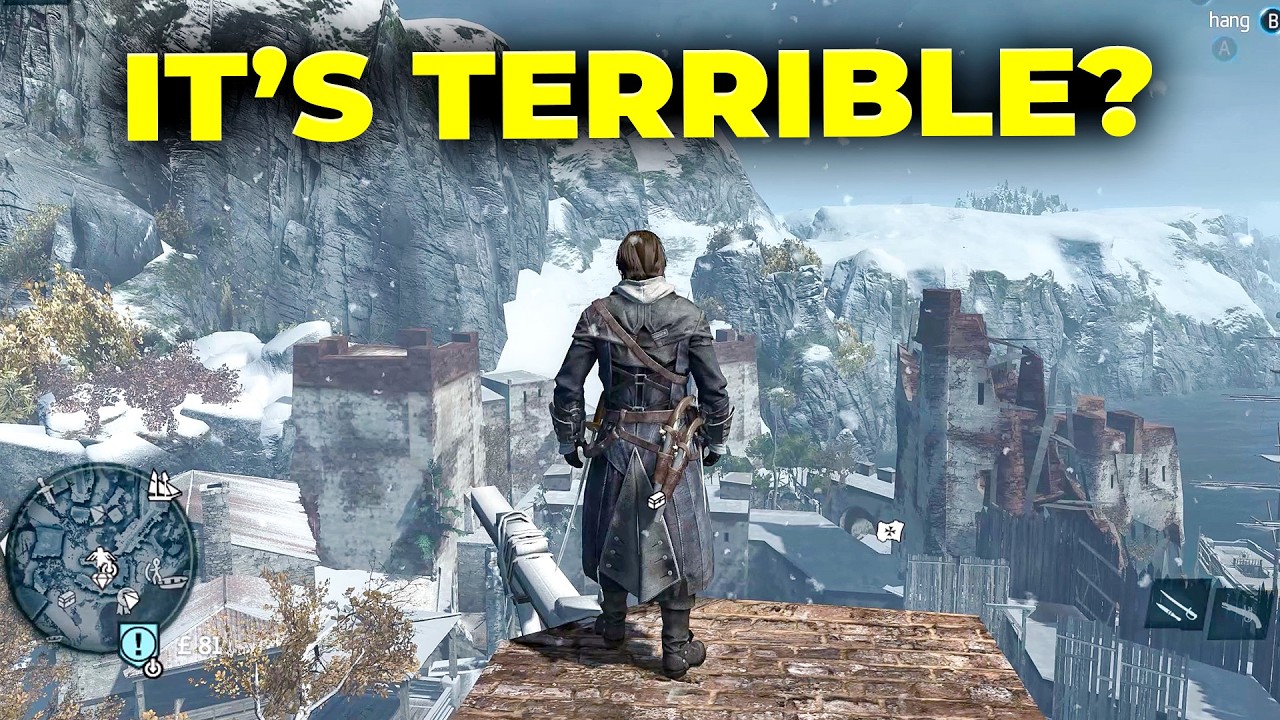
Eleven years after its release, Assassin’s Creed Rogue remains a polarizing footnote in one of gaming’s most ambitious franchises. Launched on November 11, 2014, for PlayStation 3 and Xbox 360—with a PC port following in March 2015—the game arrived as Ubisoft’s swan song for the seventh-generation consoles, squeezed between the pirate-fueled highs of Assassin’s Creed IV: Black Flag (2013) and the glitch-plagued ambitions of Assassin’s Creed Unity (also 2014). Billed as a “bridge” title tying loose ends from Black Flag and Assassin’s Creed III (2012), Rogue dared to subvert the series’ core dynamic: For the first time, players control a Templar protagonist, Shay Patrick Cormac, an Irish-American Assassin who defects after a catastrophic mission, hunting his former brothers-in-arms across the frozen North Atlantic. Critics dismissed it as a “glorified DLC” with recycled mechanics and a rushed narrative, slapping it with a middling 72 Metacritic score—lower than Black Flag‘s 88 but higher than Unity‘s disastrous 70. Fans, however, have since elevated it to cult status, calling it “underrated” on Reddit and X, where threads like r/assassinscreed’s “Why do people dislike Rogue?” rack up hundreds of comments defending its lore depth and naval thrills. So, was Rogue really that bad, or did circumstance, execution, and Ubisoft’s own chaos doom it to infamy? A decade-plus later, with the series ballooning into RPG behemoths like Valhalla (2020) and the upcoming Shadows (2025), it’s worth revisiting this rogue wave in the Assassin’s Creed ocean.
To grasp Rogue‘s rocky reception, context is key. Ubisoft was in overdrive by 2014, churning out annual releases to capitalize on the franchise’s post-Revelations (2011) momentum. Black Flag had redefined the series with its open-sea exploration, ship-to-ship combat, and Edward Kenway’s roguish charm, grossing over $1.3 billion and selling 15 million copies. But fatigue was setting in—Assassin’s Creed III had drawn fire for its clunky combat and Connor’s dour demeanor, earning a 72 Metacritic despite 12 million sales. Enter Rogue: Developed by Ubisoft Sofia (the studio behind Assassin’s Creed Liberation, 2012) in a mere 18 months, it was conceived as a last-gen stopgap to appease Sony and Microsoft while the next-gen Unity hogged the spotlight. Budgeted at around $60 million—half of Black Flag‘s $120 million—it reused vast swaths of the prior game’s assets: The Morrigan (Shay’s ship) mirrors the Jackdaw’s design; River Valley frontiers echo III‘s untamed wilds; even UI elements and sound cues feel ported over. Launching the same day as Unity on November 18, 2014, Rogue got buried under the Paris-set epic’s marketing blitz and subsequent launch catastrophe—Unity‘s frame-rate drops and bugs turned it into a punchline, overshadowing its sibling.
Critically, the backlash was swift and formulaic. Destructoid’s Brett Makedonski called it “a patchwork quilt of Black Flag‘s systems,” praising the Templar perspective but lamenting its failure to “move Assassin’s Creed forward,” docking points for dated last-gen visuals and repetitive fetch quests. GamesRadar+’s review echoed the sentiment: “After a few hours, I realized I was right: I had already done all of these things… in Black Flag,” highlighting how naval boarding parties and fort sieges felt like echoes, not evolutions. PC Gamer griped about the open world’s gating—”bizarrely reticent to let you loose”—and bugs like clipping whales or desyncing crew shouts. Electronic Gaming Monthly’s Ray Carsillo offered a brighter 8.5/10, lauding Shay’s “complex” arc and anti-assassination missions that flip the script on stealth takedowns, but even he nitpicked the “poor pacing” and absent multiplayer. OpenCritic aggregated a “Fair” 70, with only 31% recommending it—ranking it in the bottom 44% of games, a far cry from Black Flag‘s triumph. Sales reflected the chill: Rogue moved about 1-2 million first-week copies at retail, per VGChartz—solid for a last-gen exclusive but dwarfed by Unity‘s 1.5 million debut and Black Flag‘s 4 million. By lifetime figures, it’s hovered around 5-7 million, trailing most mainline entries but punching above its weight in a post-pandemic digital surge via Ubisoft+.
Yet, peel back the surface, and Rogue‘s strengths shine brighter in hindsight—especially for lore hounds. Set during the Seven Years’ War (1752-1776), it chronicles Shay’s fall from grace: Recruited by Achilles Davenport (mentor to III‘s Connor), Shay’s loyalty shatters after a precursor site raid triggers the 1755 Lisbon earthquake, killing thousands and exposing the Assassins’ reckless artifact hunts. Branded a traitor, he joins Haytham Kenway’s Templars (III‘s antagonist), becoming the “Hunter of Assassins” and slaying fan-favorites like Adéwalé from Black Flag‘s Freedom Cry DLC. This inversion humanizes the Templars’ “order through control” ethos, portraying Assassins as dogmatic zealots blinded by “nothing is true, everything is permitted” to catastrophic ends. Modern-day segments, set in a besieged Abstergo facility, tie into Unity‘s Initiate program, with hackers storming servers amid AR drone swarms—a prescient nod to the series’ meta-layer that Syndicate (2015) would expand. For invested players, these threads weave a tapestry: Shay’s vendetta explains the Colonial Assassins’ decimation, setting up Connor’s lone-wolf arc and Haytham’s paternal tragedy. “It’s fascinated by its own history,” praised Eurogamer, introducing “ambiguity which changes how we look at the… conflict.”
Gameplay, while iterative, captures Black Flag‘s seafaring soul with tweaks that reward Templar ruthlessness. The Morrigan’s broadsides pack pummeling chain-shot; Shay’s “counter-kill” parries let him assassinate mid-block, turning defense into offense. Gang hideouts become Templar strongholds to fortify for income, echoing ACII‘s villa upgrades but with pirate flair—raiding Assassin convoys for blueprints or allying with indigenous Iroquois for safe havens. Exploration spans foggy fjords, ice-locked wrecks, and Hudson Bay outposts, with whaling mini-games and submarine dives adding verticality. Bugs marred launch—frequent crashes on PS3, finicky eagle vision—but patches stabilized it, and the 2018 Remastered edition for PS4, Xbox One, and PC polished visuals with 4K support and HDR, bumping scores to 75 on Metacritic. HowLongToBeat users log 20-25 hours for the main story (shorter than Black Flag‘s 25-30), but completionists chase 50+ with collectibles like Viking artifacts and Templar visions—easter eggs foreshadowing Origins (2017).
Fan discourse tells a redemption tale. Early hate stemmed from bias: “I’m biased towards the Assassins,” confessed a Redditor, hating Shay’s hunts despite admitting the betrayal premise was “super weak.” Others decried its “shallow” flip—Assassins as “maniacs” without nuance, Templars as enlightened saviors sans scrutiny. A 2022 Fandomentals analysis framed Shay’s arc as “indoctrination allegory,” critiquing its colonial blind spots: Iroquois allies reduced to sidekicks, Lisbon’s quake glossing Portuguese suffering for Templar propaganda. Yet positivity dominates retrospectives. “Hot take: Rogue is by far the most underrated,” tweeted reviewer @SynthPotato in 2023, praising its “genuinely great” lore. r/assassinscreed threads like “Decided to play AC: Rogue—Don’t Understand the Hate” (2017) ballooned with 100+ upvotes, users calling it a “celebration of… what made that gen great.” X semantic searches for “Is Rogue really the most hated?” yield defenses: “Severely overhated game,” posts @Scott_delaney15 (2025), amid 2022 Ubisoft sales flashing it at $5. IMDb users hail it as “excellent… fun and engaging,” a “must-play for any AC fan” despite flaws. Even detractors concede: “Not the best… but the story and character making is pretty decent.”
This reevaluation aligns with the franchise’s evolution. Post-Rogue, Ubisoft hit reset: Syndicate ditched naval for steampunk London; Origins birthed the RPG era, selling 10 million with myth-infused Egyptian sands. Rogue‘s Templar lens prefigures Odyssey (2018) and Valhalla‘s moral grays, where Isu artifacts blur creed lines. Its 2024 Nintendo Switch port alongside Black Flag—celebrated on Talk Like a Pirate Day—revived buzz, with @assassinscreed teasing “Kraken not the only thing we’re releasing.” Comedic jabs, like @JeffGrubb’s 2020 pun likening it to Hades (“nothing like Rogue“), underscore its memeable niche. But shadows linger: Recent X chatter ties Rogue hate to broader AC gripes, with @EndymionYT (2025) slamming Shadows as “mid” compared to Tsushima, indirectly boosting Rogue‘s relative shine.
Ubisoft’s missteps amplified the negativity. Poor marketing—Rogue as a “surprise” last-gen exclusive—doomed visibility; leaks spoiled Shay’s twist months early. No season pass meant scant post-launch support, unlike Black Flag‘s Freedom Cry. Cultured Vultures (2017) vented frustration: “Why put no effort in? Rogue is just a reskin.” GameFAQs boards puzzled over “bad reviews,” with users defending its brevity as a virtue for annual fatigue. Esports.net’s 2023 review nailed the duality: “Unique… one of the more unique tales,” but “redundant” for newcomers.
In 2025, as Shadows courts controversy with its dual protagonists and historical liberties—drawing more dislikes than any AC trailer (That Park Place, 2024)—Rogue‘s restraint feels quaint. It wasn’t revolutionary; at 15-20 hours, it skimps on side content, and Shay’s broody shouts grate like Connor’s. Combat, while fluid, lacks Origins‘ gear depth, and bugs persist in unpatched ports. But for $5 digital deals or Switch portability, it’s a lore lifeline—explaining Achilles’ hermitage, Adéwalé’s fate, and the Assassins’ pre-Revolutionary purge. X user @JazineG (2025) captured the split: “Sometimes… the most hated… at other times… the most loved.”
Ultimately, Rogue embodies Assassin’s Creed’s double-edged hidden blade: A sharp subversion dulled by circumstance. Not the nadir—Unity‘s bugs and Liberation‘s brevity claim that—but far from peak Ezio elegance. If you’re series-deep, it’s essential; for casuals, skip to Black Flag. Hated? Overhyped backlash. Bad? No—just a rogue in a creed of giants, whispering truths amid the storm.

